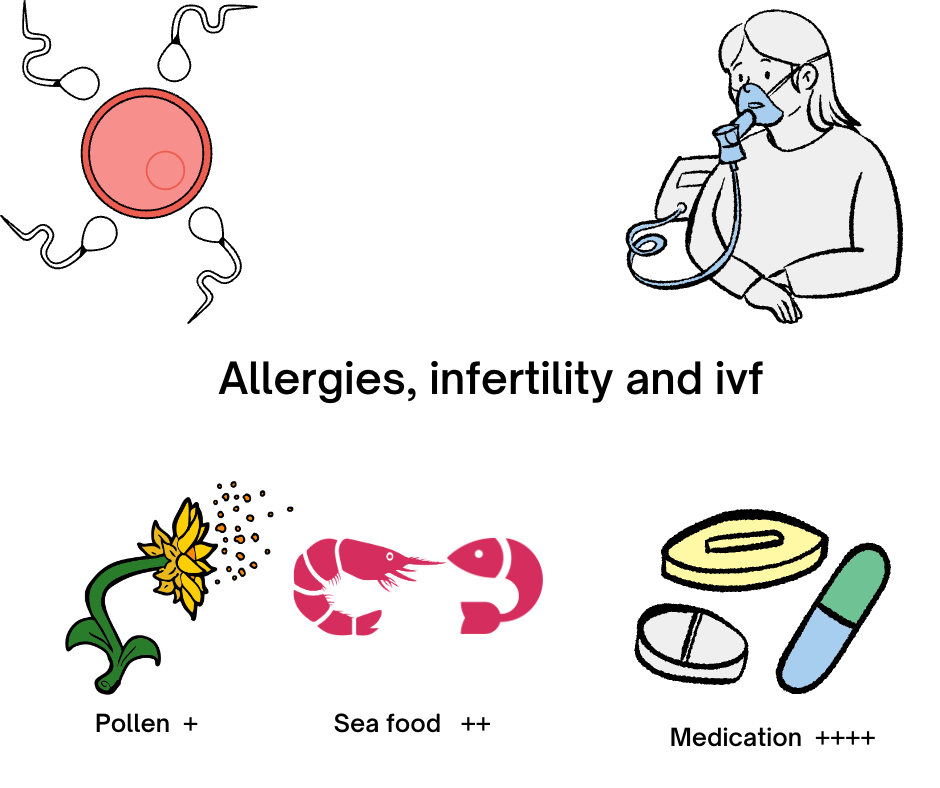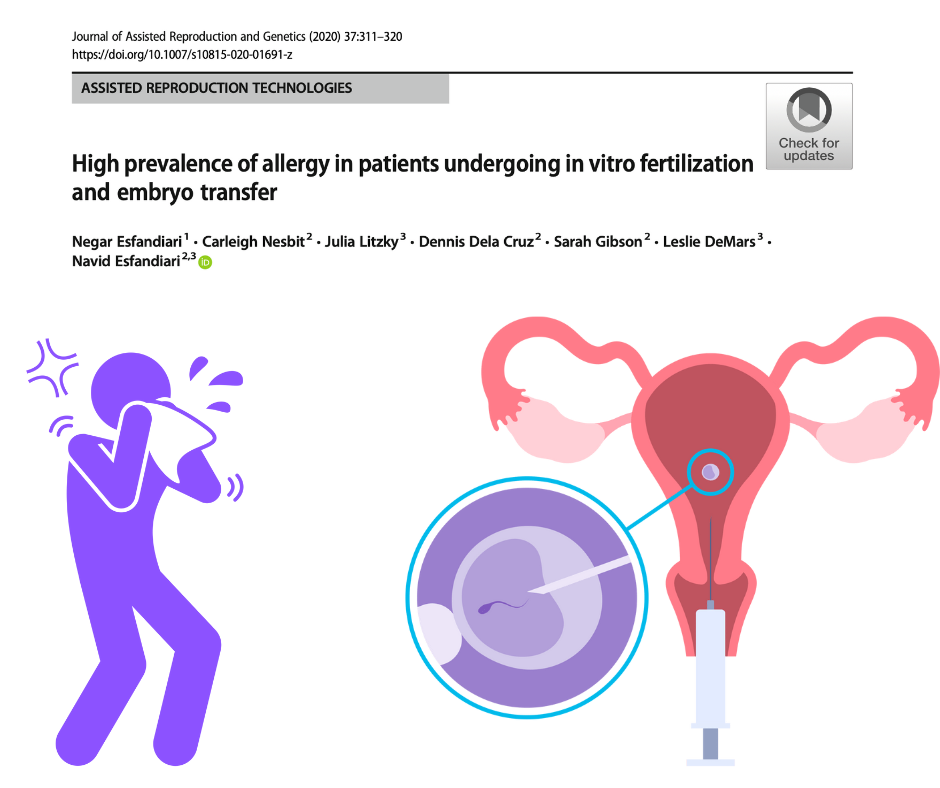Allergies do not directly affect the outcome of an in-vitro fertilisation (IVF) cycle. Still, they can lead to other health issues impacting fertility and IVF success. For example, uncontrolled allergies can lead to chronic inflammation, which can interfere with the normal functioning of the reproductive system and make it more difficult to conceive. In addition, some allergy medications, such as antihistamines, can also affect ovulation and fertility by reducing the secretion of certain hormones.

A study by Negar Esfandiar et al. found that more than half of the female patients (51.7%) undergoing IVF had at least one reported allergy, and 18.3% had more than one reported allergy. Among all female patients with allergy, allergy to antibiotics was most common, followed by allergy to other prescription medications. Allergy to environmental and other allergens was less common. The high allergy prevalence in the infertility population is consistent with a 2006 study by Zac et al., which demonstrated an increased prevalence of infertility in Brazilian women with allergies.

Another study by Svanes et al. found that women with PCOS, a common cause of oligo-ovulation, had a higher allergy prevalence than the general population. PCOS patients were also found to have a high allergy prevalence in the study by Negar Esfandiar et al., with three-quarters of PCOS patients having an allergy. This suggests that there may be a link between PCOS and allergy, mediated by hormonal or immune factors.
Allergies can also cause complications during the IVF process, such as allergic reactions to the drugs used in IVF treatments. These reactions can range from mild to severe and affect the quality and quantity of eggs and embryos. Therefore, if you have a history of severe allergies, it’s essential to inform your fertility specialist and your allergist, so they can take the necessary precautions to minimise the risk of complications during the IVF process.
